#intergenerational trauma
Explore tagged Tumblr posts
Text
YES
Reading this open source article on how Jewish tauma and distress is treated by non-Jews made things click for me and helped me realize what happened and why I felt ill when I expressed my fears of antisemitism in my city and globally during a situation that took place roughly a year ago. I highly recommend reading it through.
This is an article about the article:
The article itself:
#traumatic invalidation#100% this#antisemitism#intergenerational trauma#jewish trauma#jumblr#leftist antisemitism
713 notes
·
View notes
Text
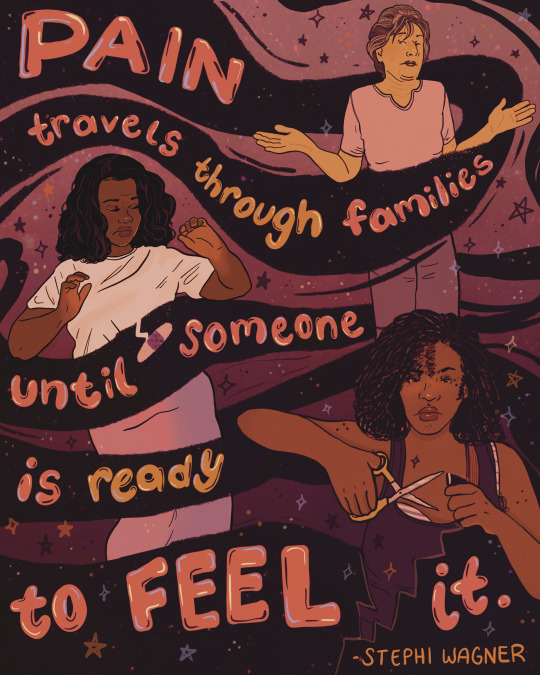
Your feelings are valid on too. Special shoutout to all the cycle breakers. 💐
Created with Mother Wound Project
Digital illustration depicting three generations of women with a ribbon linking all of them. The scene includes an elderly Latina woman shrugging, a middle-age Afrolatina woman dodging the ribbon & her daughter cutting the ribbon. Text reads, “pain travels through families until someone is ready to feel it” by Stephi Wagner
#art#feminism#trauma#intergenerational trauma#mother wound#mommy issues#childhood trauma#tw trauma#tw child abuse
2K notes
·
View notes
Text
when ethel cain said “i tried to be good am i no good am i no good am i no good” which started with her self-loathing after being abused by her father and neil perry said “i was good. i was really good” and then he killed himself because he knew that he would never be good enough for his father
#strangers ethel cain#ethelcain#ethel cain#hayden silas anhedönia#hayden anhedönia#preachers daughter#feelings#writing#coming of age#quotes#web weaving#american teenager#sun bleached flies#a house in nebraska#southern gothic aesthetic#southern goth aesthetic#southern gothic#dead poets society#neil perry#mommy issues#daddy issues#intergenerational trauma#mothercain#mother cain#western nights#family tree#ptolemaea#august underground#televangelism#on fathers
2K notes
·
View notes
Text
Found out yesterday my great-great grandparents died in a pogrom in modern-day Ukraine in 1920. The violence lasted for 5 days and killed about 700 people.
I don’t know how to make goyim understand that when finding this out I was so devastated and yet unsurprised. I was unsurprised because when learning Jewish history, starting around the middle ages to modernity, I always feel as if it is “my history.” These events happened to my ancestors. Even if technically that isn’t true.
I did not realize until the start of my MA program in public history that it is not common for people to feel this close a connection to their ethnic/religious groups history.
This phenomenon is what I want goyim to understand. That feeling of when i found out the specific event of violence that killed my great-great grandparents felt more like a final nail in the coffin than an unexpected blow. Yes, it hurt and i cried as i always do when i found out the specifics of my families deaths to antisemitic violence. But it was not a surprise. Why would it be when since at least middle school I remember learning about jewish history and internalizing it as my own history that happened to my own family.
And this phenomenon is also why jews react so strongly when violent antisemitism is in the news. Yes, it has to do with intergenerational trauma but also this deep connection we feel to all of Jewish history. That we can see how this is just another atrocity in a long line of atrocities. That there is no tangible difference between the victims and ourselves. This is all of our collective history.
#antisemitism#history#jumblr#judaism#leftist antisemitism#public history#intergenerational trauma#ukraine
572 notes
·
View notes
Text
i read somewhere that grey whales can live upwards of 150 years, and that there are likely grey whales out in the oceans today that were alive and saw the massive whale hunts of the 19th century that inspired herman melville's moby dick.
to be clear, i have no idea if this is true. it could just be apocryphal, or something someone made up. but even if it isn't true, i think there's a something to read into that in terms of trauma and repair. if there really are whales on this planet today that are alive after seeing so many other creatures like them slaughtered and dragged out of the water by unknown hands for an unknown purpose, then those whales know the dangers and flee from them even after the people who hunted their kin have been over a hundred years dead. and they taught their calves to flee the same way. and those calves taught their calves.
150 year old whales teaching younger whales who teach younger whales who have no experience with the reasons why they must avoid boats, but know in their blood and bones that their safety relies on it.
something something trauma long outlives the people who inflict it. something something trauma transforms how generations grow.
#i don't know where i'm going with this#i just think about it a lot#shut up alix no one cares#trauma#whales#intergenerational trauma
312 notes
·
View notes
Text
Shoutout to Indigenous systems on this day for Truth and Reconciliation!
Today, September 30th, is the Canadian National Day for Truth and Reconciliation. This is a day of remembrance for victims and survivors of Indian residential schools in Canada, though it could likely apply to those who live on Turtle Island in general.
If your system or someone you know is or knows a survivor of an Indian residential school, or has a loved one who did not survive their time in a residential school, our hearts go out to you. We are wishing for you and family a future full of strength, peace, and resilience. Inter-generational trauma can have significant impacts, and the pain imposed on your loved ones and ancestors should not be forgotten as time passes. We hope that their lives can be honored and remembered throughout history, and we want to do our part to help preserve their legacy.
For allies of Indigenous peoples, if you are able to, please wear an orange shirt today to honor those whose lives were forever changed due to the negative impact residential schools has left on indigenous communities. Remember that, even today, Indigenous peoples face hardships, disparities, and inequalities in our society. The closure of residential schools does not mean rest, healing, and proper compensation for the victims of such institutions. Let’s vow as a community to make our spaces safe and accepting of Indigenous systems, and do our part to educate ourselves on their histories so that we may be better allies in the future.
Friends, please show some support to the Indigenous people in your lives today, and do not take their presence for granted. Take a moment to learn more about the history of Indian residential schools in Canada and the United States, and the grim legacy they have left which many Indigenous communities are still dealing with today. If you are able to, please reach out to the Indigenous systems and non-systems in your lives to provide support in whatever ways they have requested.
We will include links to sites and organizations where you can learn more about the Canadian National Day for Truth and Reconciliation and the history of Indian residential schools in both Canada and the USA, along with links where you can directly support survivors of Indian residential schools. Remember, if you cannot support these organizations or individuals financially, you can show your support by educating yourselves and providing a space in your own communities where Indigenous voices can be acknowledged and uplifted.
Indigenous systems, we love you, we are in your corner, and we want to support and uplift you however we can. Please do not hesitate to get in touch if there is anything we can do to help make our spaces more welcoming for you. You have an important and treasured place in the plural community, and we are honored to be able to share this space with you. We hope that you can do your best to treat yourselves and your system with compassion and gentleness today, and take care!

‼️ Non-indigenous systems are welcome and encouraged to reblog, but DO NOT derail or try to center your voice over actual indigenous systems and those who are actually affected by inter-generational trauma due to Indian residential schools!‼️
#plurality#pluralgang#multiplicity#actuallyplural#plural positivity#system positivity#plural pride#system pride#indigenous systems#indian residential schools#intergenerational trauma#day for truth and reconciliation#orange shirt day
150 notes
·
View notes
Text
You ever notice how Blitz and Stolas were so traumatized by their fathers that they went too far in the other direction, accidentally hurting their daughters in the process?
Blitz was physically abused, the family scapegoat, constantly made to feel worthless, and taught from a young age that he’s only worth the money he can provide? So he’s overly doting and protective of Loona. He never lectures her, even when she’s causing trouble, because he doesn’t want to upset her and make her feel worthless or disposable. He won’t let her have a boyfriend, despite the fact that she’s an adult. He borderline infantilizes her.
Stolas is more a product of neglect and while he had a better time raising Via, it’s easier to raise a kid that you’ve had from birth as opposed to one you adopted only a month before they aged out of foster care. But he still swung too violently in the opposite direction. He has no boundaries with her. He protects her from the wrong threats (the knowledge of his abuse as opposed to the abuser, herself). It looks like she’s home schooled, so he still hasn’t worked out that the extreme isolation he suffered is a large part of why he’s Like This. He’s spent so much time attending to her every whim that when he decides it’s time to start chasing his own happiness, she can’t empathize because she was his happiness.
It’s a great depiction of intergenerational trauma. Both of them are trying so hard to never make their daughters feel as awful as they felt, but they’re scarring their daughters in different ways.
#stolas#blitzø#loona#octavia#helluva boss#intergenerational trauma#tw abuse#tw child abuse#tw neglect
229 notes
·
View notes
Text
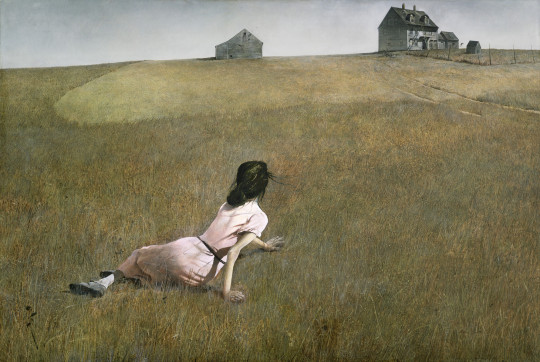

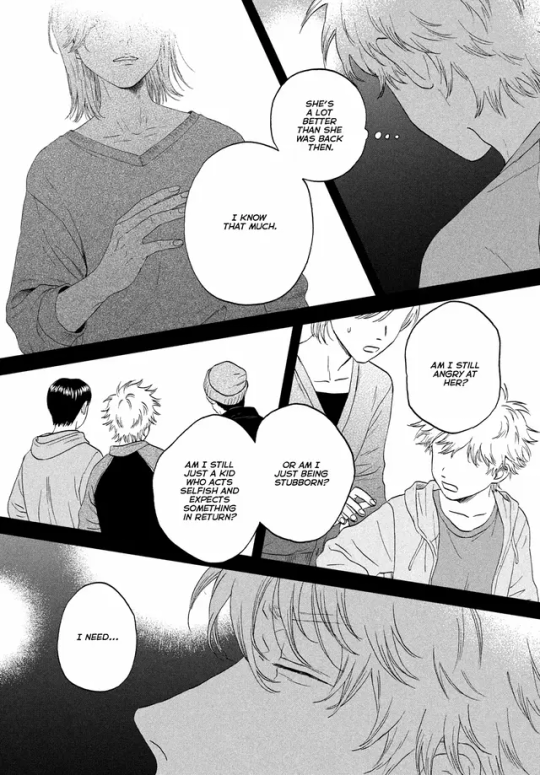
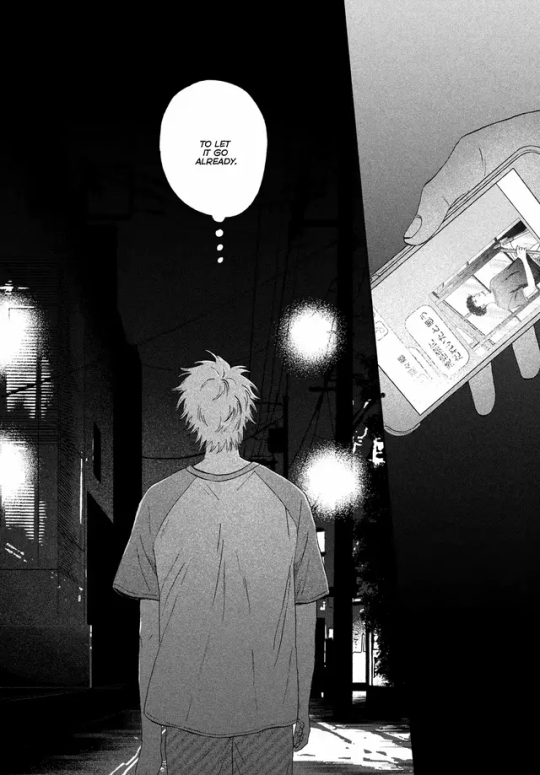






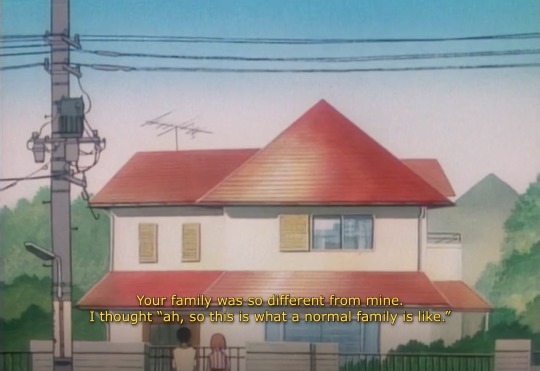

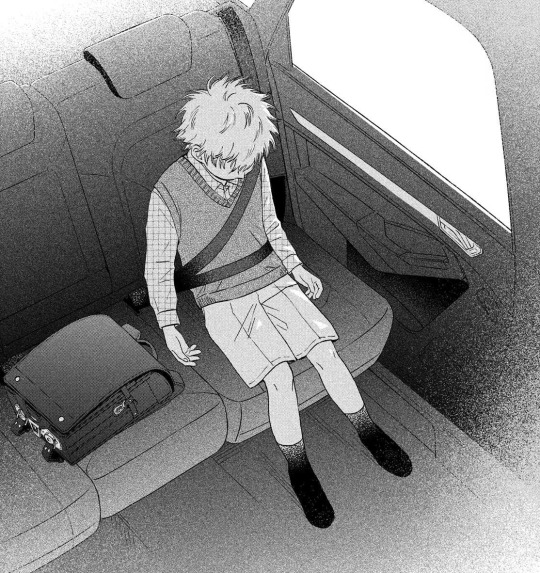
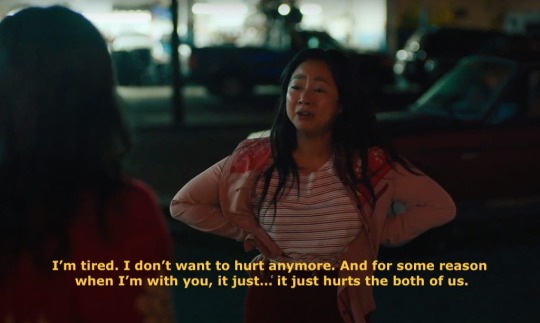
Christina's World // Andrew Wyeth
The Crane Wife // CJ Hauser
Skip to Loafer // Ch. 56
I Love You, I Hate You // Little Simz
Lockwood and Co. // Ep. 1
First Love / Late Spring // Mistki
All of Us Strangers (2023)
Kare Kano // Ep. 3
Faulty // Leila Chatt
Skip to Loafer // Ch. 42
Everything Everywhere All at Once (2022)
#web weave#web weaving#childhood emotional neglect#childhood trauma#complex ptsd#trauma#emotional neglect#skip and loafer#skip to loafer#shima sousuke#little simz#i love you i hate you#music#lyric posting#lyric quotes#all of us strangers#kare kano#his and her circumstances#Kareshi Kanojo No Jijou#poetry#everything everywhere all at once#intergenerational trauma#tw childhood trauma#tw child neglect#mitski#first love / late spring#stephanie hsu#paul mescal#andrew scott#lucy carlyle
58 notes
·
View notes
Text
My biggest personality flaw :
Realizing that I would stan every male protagonist if they were a girl.
(Jon Snow) Joan Snow would have made me sick with how she never felt at home in the place she was
(Harry Potter) Hari Potter would be a sad girl , failure icon, and every adult male figure project their issues onto
(Light Yagami) Lucia Yagami would be a gone girl, girl boss, femcel icon with a God complex and female rage
(Eren Yeager) Eden Yeager; God forbid a girl have goals and homicidal rage and intergenerational trauma.
(Lucerys Velaryon) Lucerys/ Lucerra Velaryon would be a girl trying her best/ dying too soon by male obsession
(Jacaerys Velaryon) Jacaera/ Jaenora Velaryon had potential but never made it.
The author fumbled with them
#a song of ice and fire#jon snow#the house of the dragon#game of thrones#female lucerys velaryon#prince lucerys#lucerys velaryon#prince jacaerys#jacaerys velaryon#jacaerys targaryen#female jacaerys velaryon#harry potter#female harry potter#intergenerational trauma#femalecharacters#death note#light yagami#attack on titan#eren yeager
155 notes
·
View notes
Text
I have caught up through episode 8 of TsukuTabe and I really cannot contain my emotion about Kasuga's arc with her family in these episodes, so I am here to scream. That was so fucking beautiful. This has to be one of my favorite depictions of breaking the cycle of family trauma that I have ever seen.
I loved how efficiently the show established everything we needed to know about Kasuga's father with just a few lines of dialogue over the phone. The way he began the conversation by trying to shame her, the way he started making demands without asking her a single question about her life or how she was doing, the way he casually said "Akira is in the prime of his life" while tacitly dismissing any worth or value Kasuga's own life as a single woman might hold. With just that one conversation we knew exactly who that man is and why Kasuga has tried to build her own life in solitude rather than continue to live with him.
And her conversation with Nagumo gave us even more insight into how she was raised that fills in some context about the way she thinks about food and why taking pleasure in her meals is such a big deal for her. Kasuga's family deprived her of food (love), and so it's no wonder that meeting someone like Nomoto, who was so determined to give her food (love), would be such a life altering event for her, and finally give her the sense of safety she has never had.
I loved, too, that the show delivered some firm commentary on the way women are subjugated in heterosexual marriages and forced to serve their husband’s family like indentured slaves, particularly in many Asian cultures. Kasuga was very affected by seeing her mother live that way, and you could see she is carrying guilt about leaving this burden to her mother. But ultimately, she cannot control her mother's choices or fix her mistakes, she can only save herself from repeating them. And she found the strength within herself to do it, even though it must have been terrifying to take that leap.
The way that Kasuga drew that boundary with her father was a Very Big Deal in her cultural context, and I loved that the show drove that point home by having Kasuga confess to Nomoto about her decision and express her fear of being judged. She knows she will absolutely be cast as a bad daughter and judged harshly by most people who find out she has cut ties with her father, and she needed Nomoto to reassure her once again that their relationship is a safe place for her. She needed Nomoto to reassure her that she is her family now and she will always be on her side. And of course Nomoto did exactly that, and we got to end this very emotional episode with a Kasuga who is bravely building the life she wants for herself with the love and support of her chosen family.
#tsukuritai onna to tabetai onna#she loves to cook and she loves to eat#intergenerational trauma#japanese gl#shan shouts into the void
117 notes
·
View notes
Text
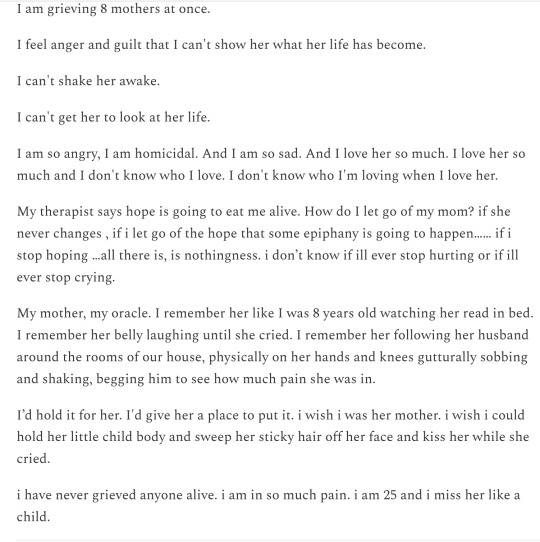
"my mother" by lea jane
#mommy issues#mother wound#daughterhood#intergenerational trauma#family issues#coming of age#web weavings#web weaving#web weave#parent trauma#eldest sibling#eldest sister#eldest daughter#writing#quotes#essay#on mothers#on childhood#on growing up#on parents#inner child#trauma#inner child healing#reparenting#childhood trauma#mother
670 notes
·
View notes
Text
Dealing with intergenerational trauma is weird. It's especially weird when you're part of a diaspora community and your intergenerational trauma is something that the society around you is responsible for and wants to keep buried.
Today, in my extended family group chat, one of my relatives posted photos of something awful that happened to my family before I was born. None of the rest of us knew that this had happened. My grandparents' generation took it to their graves, I guess. This isn't something happened to me, or to anyone living. But I suddenly have to carry the weight of something that happened to my family before I was born. As if there weren't enough to carry already.
I'm seeing my therapist soon, but I know for a fact that she doesn't know much about the imperialist violence that befell my family, because I had to explain it to her several sessions ago, because she was raised in a society that does not want anyone to think about imperialist violence too deeply.
I'm glad the skeletons aren't staying buried. But each of these revelations is like suddenly finding a scar on my body that I've had since birth.
17 notes
·
View notes
Text
Never being able to fit in fucks with a person deeply
#thad says something#thad vents#actually autistic#neurodivergent#audhd#actually traumatized#autism#isolation#peer abuse#autism and trauma#social isolation#neurodiversity#vent post#please interact#family trauma#intergenerational trauma
50 notes
·
View notes
Text
Working on the Toji AMV n idk why but I found this screencap of Megumi so funny
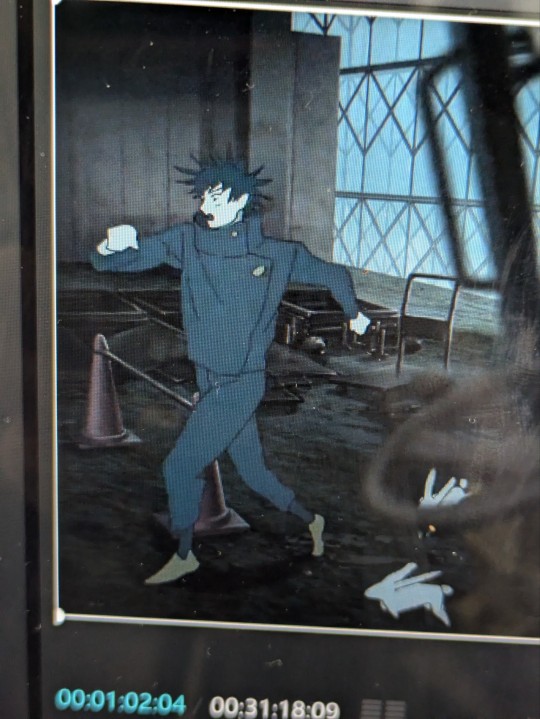
run faster boy ur dad's ab to beat ur ass
#intergenerational trauma#anime#anime memes#jjk#jujutsu kaisen#jjk memes#jjk shibuya arc#jjk shibuya incident#amv#toji fushiguro#fushiguro toji#megumi fushiguro#fushiguro megumi
30 notes
·
View notes
Text
164 notes
·
View notes
Text

The good news? I got first crack at my library's fresh copy of Oathbound by Tracy Deonn just a week after release. Yay!
The better news? It rocks. And it's a huge book - 650 pages.
The greatest news? It's not the last book.
The bad news: I have to wait for the next book now.
There's something for everyone here -- some more awesome Black Girl Magic and Love, new characters and factions, more communities and cultures, some great introspection for a lot of characters besides the protagonist (who gets good growth).
I really love how Deonn also explores mixed heritage in a lot of different ways, as well as the struggle with shame and guilt if we don't live up to what our ancestors wanted from us, and the sticky question of whether we are bad for cutting off hurtful family.
So even though I'm not the target audience for this series, I love it and love that I could share it with my students as well. I love that this story is out there for the Black girls and Black women and mixed race folks and people with institutional trauma and missing/absent parents and messy relationships (that really want to become polycules...). I heard that this series hasn't been getting its due love and visibility lately, so this is my little nudge to cheer it on because it's awesome.
#legendborn#oathbound#tracy deonn#Black girl magic#arthurian retelling#knights of the round table#accurate welsh#institutional oppression#intergenerational trauma#mixed race representation#fantasy#fantasy reads
11 notes
·
View notes